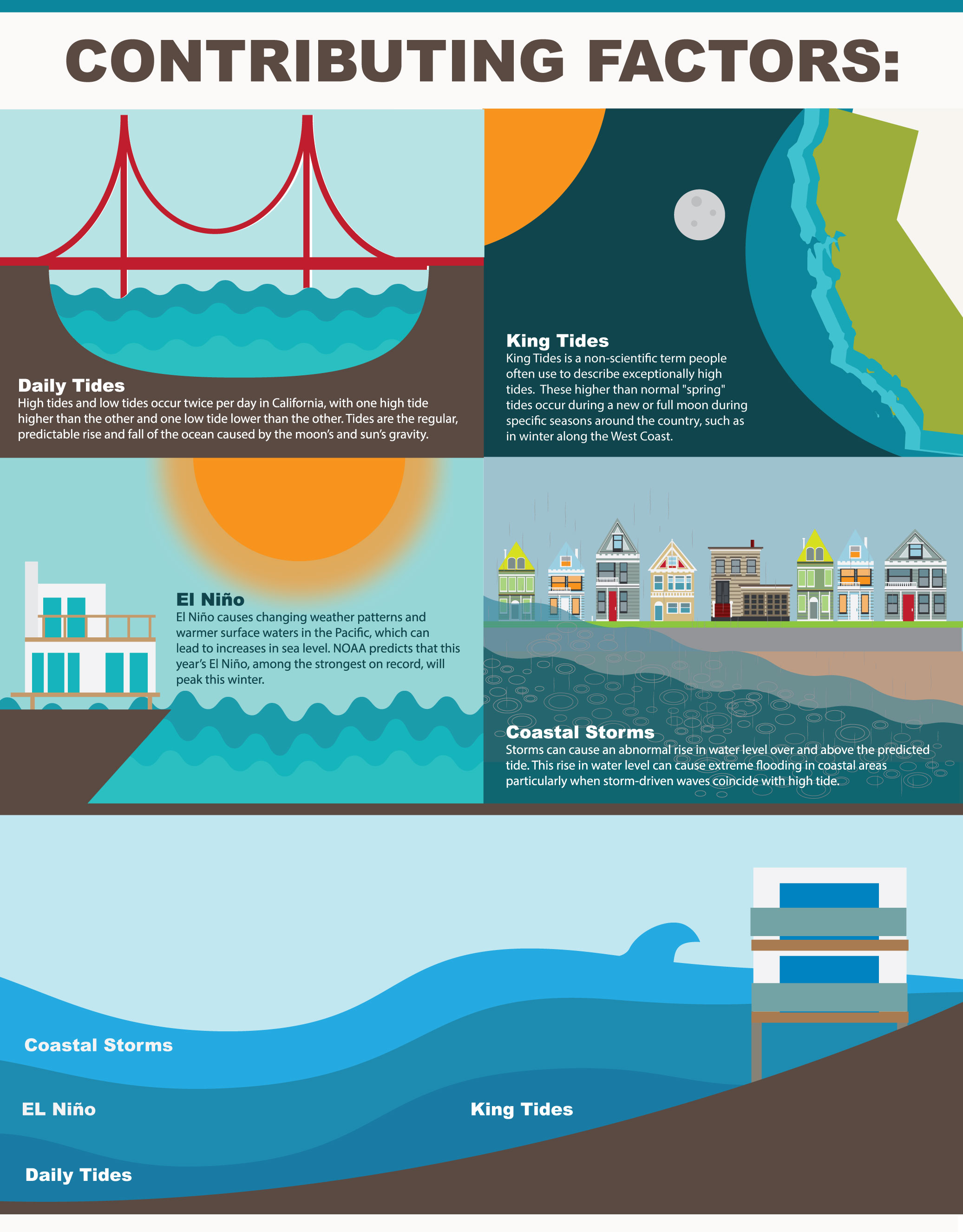- By Marketing
- In Mold Removal
Coastal Flooding in California
Why are California’s high tides higher this year?

- Daily tides: High tides and low tides occur twice per day, with one high tide higher than the other and one low tide lower than the other. Tides are the regular, predictable rise and fall of the ocean caused by the gravity of the moon and sun.
- King tides: This is a non-scientific term people often use to describe exceptionally high tides. These higher than normal “spring” tides occur during a new or full moon during specific seasons around the country, such as in winter along the West Coast.
- El Niño: El Niño causes changing weather patterns and warmer surface waters in the Pacific, which can lead to increases in sea level. NOAA predicts that this year’s El Niño, among the strongest on record, will peak this winter.
- Storm Surge: Storm surge is the abnormal rise in water level caused by a storm, over and above the predicted tide. This rise in water level can cause extreme flooding in coastal areas particularly when storm surge coincides with high tide.
“King Tide” is a non-scientific term people often use to describe exceptionally high tides. These higher than normal “spring” tides occur during a new or full moon and when the Earth is at its perigee, or during specific seasons around the country. In California and much of the West Coast, they occur in the months closest to the winter and summer solstices. These alignments in space and time are fairly predictable, and so are King Tides.
One difference this year is the occurrence of an El Niño, which NOAA predicts will be the strongest on record. Put simply, when there is an El Niño, sea levels on the West Coast are generally higher due to warmer, expanded ocean waters and changing weather patterns. Tides “ride” on top of sea level and are influenced by what is happening at any given time with climate and weather. This means that normal everyday high tides are already higher because of El Niño. On days when there are King Tides, they become even higher.
Another factor to consider is coastal storms and waves, which can cause an increase in water level on top of the already higher-than-normal tides. If a winter storm coincides with a King Tide event in this El Niño year, the total water levels may be extreme, and impacts may be even greater.
Climate scientists predict that El Niño will peak sometime in January-February of 2016, meaning that Californians can expect these especially high tide events to last through the winter.
Californians can expect impacts to population and infrastructure.
http://oceanservice.noaa.gov/news/dec15/california-flooding.html
